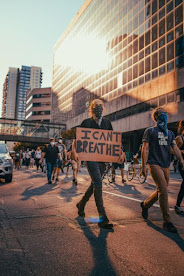Let Crude oil remain underground-unexploited

Soldiers guarding a crude oil storage Tank in South Sudan In November 2020, we ran a story on the risk facing the fossil fuels industry, we asked; whither the industry and the economies that depend on it to fund national development? https://eaers.blogspot.com/2020/11/whither-fossil-fuels-and-dependent.html Now, a recent report on the Ugandan oil industry provides the answer- and it is gloomy. The Ugandan oil industry comprises the upstream wells, the Midstream oil evacuation pipeline, EACOP, and the downstream oil refinery. The crude oil prices, on the other hand, are declining with no prospect of turning north significantly in the future. Developing this industry could thus be spending good money in pursuit of bad. The world is shifting away from fossil fuels due to climate concerns. The report, “ understanding the impact for a low carbon transition on Uganda’s planned oil industry” by Climate Policy Initiative, CPI, suggests that the industry is stillborn. Although the r










